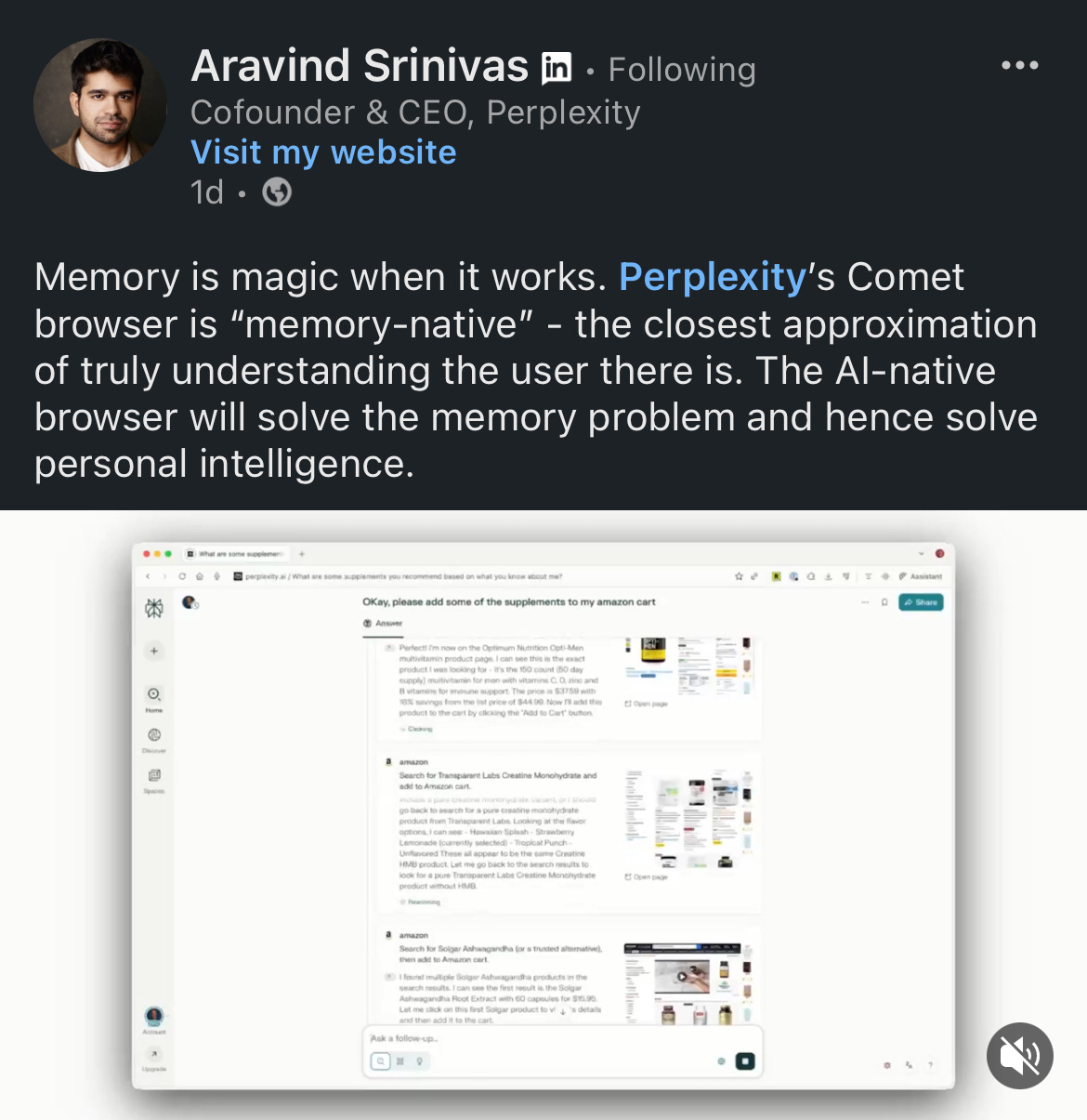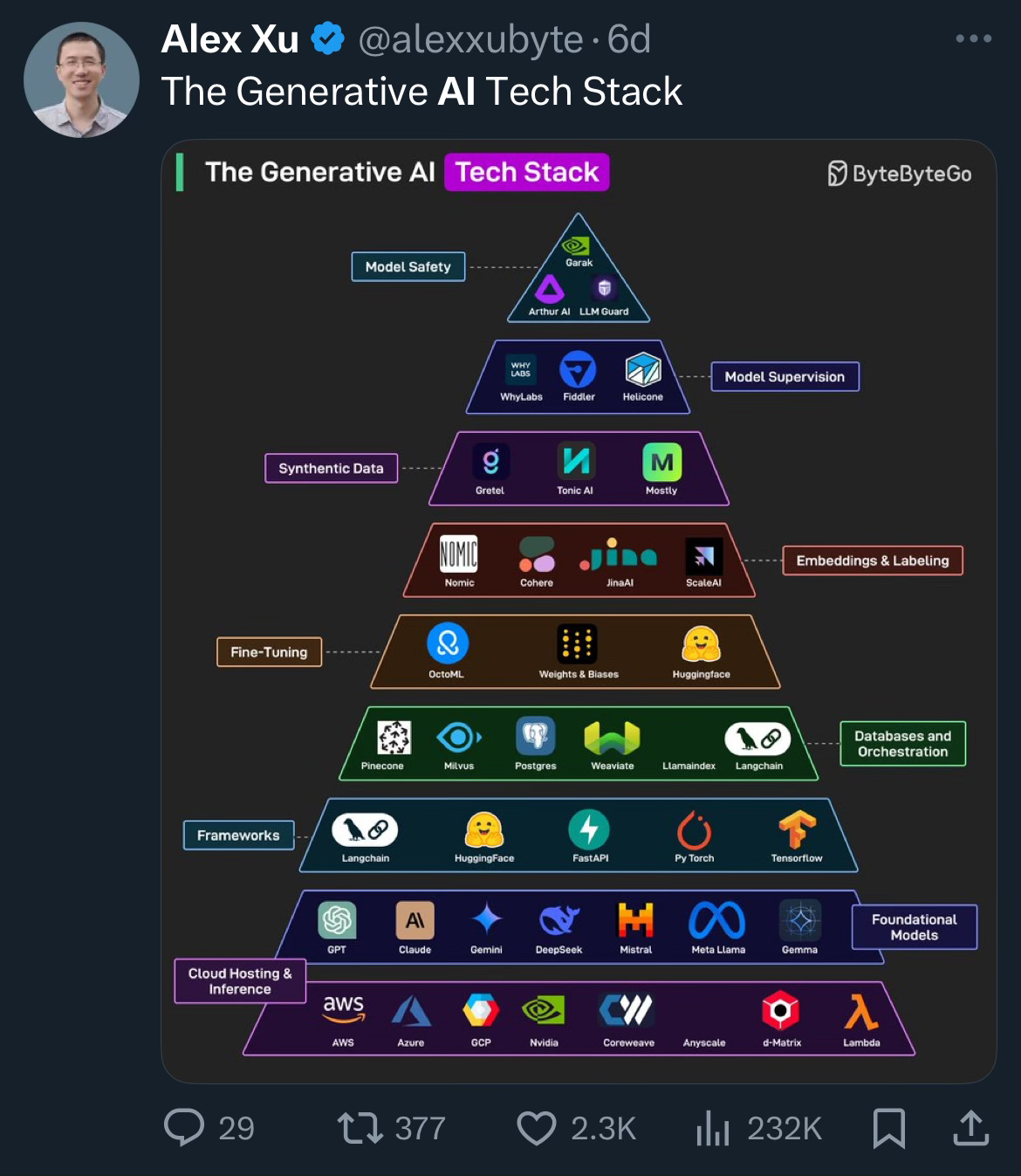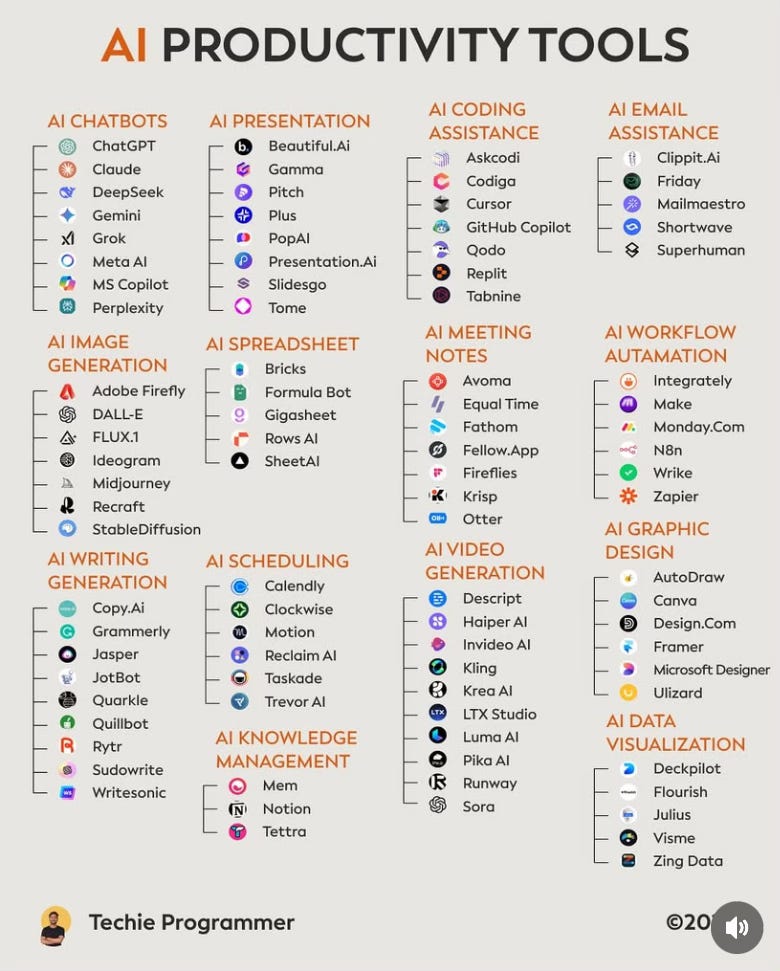🟠What Caught My Attention This Week
Curated insights on what I saw this week as it relates to Intelligent Products.
The future doesn’t look futuristic anymore, it looks like tools we already use are getting 10x smarter.
This week showed us how fast intelligent products are becoming default, embedded and expected everywhere.
Artificial Intelligence
GROK-4 rolls out, and it’s all-in on real-time and reasoning
xAI released GROK-4 this week, Elon Musk’s latest large language model now powering X (formerly Twitter) search and chatbot features. The new model supports long context windows and shows stronger reasoning especially in math and code.
Why it matters: While GROK may be best known for its edgy tone, under the hood it’s a serious push toward real-time reasoning and tight integration with live data. For product teams, it shows where LLMs are headed, not just text generation, but multi-modal, real-time, contextual intelligence.
Example: GROK-4 could power a customer support assistant that pulls real-time inventory, understands context from long chat histories, and gives math-based answers like refund calculations on the fly. This isn’t just chat. It’s compute plus context plus character.
Amazon launches agent marketplace with Anthropic
Amazon is quietly preparing a store where developers can pick and deploy AI agents ready-made tools that complete tasks like scheduling, summarizing, or analyzing.
Why it matters: This moves AI from something you build into something you browse and plug in. We’re entering the “AI app store” era.
Example: A product manager could grab an agent for onboarding flows or customer analysis without writing a line of AI logic.
Perplexity launches Comet, a conversational, browser-based AI agent(will they take over Google search?)
Perplexity released Comet, an AI-powered browser currently available to Max subscribers at $200/month. It comes with an agent that can browse tabs, summarize content, handle logistics, and stitch together multi-step tasks .
Why it matters: This turns browsers from passive surfaces into active copilots that can act and organize on your behalf. For product teams, it suggests intelligence won’t just live inside apps it will be embedded in the very environment people use daily.
Example: A marketer using Comet might review Pay-per-click (PPC) campaign results, ask the sidebar to rank underperforming keywords, draft an optimized email, and schedule it all inside the browser without switching apps.
Moonshot’s Kimi model challenges GPT-4 openly
Chinese startup Moonshot released Kimi-2, an open-source model that reportedly matches or exceeds GPT-4 in code reasoning.
Why it matters: This isn’t just about performance it’s about access. More open models mean more experimentation, especially for startups.
Example: A small dev shop could integrate Kimi-2 to power an AI code assistant without paying OpenAI’s API rates.
IBM launches Power11 to run AI nonstop
IBM announced new enterprise servers that can run AI inference without downtime.
Why it matters: AI needs to work as reliably as your electricity. For production teams, this lowers the risk of deploying AI into critical workflows.
Example: A healthcare company could run real-time diagnostics without worrying about the model “going offline.”
Shopify: Use AI or don’t ask for more budget
Tobi Lütke told Shopify staff that AI usage is now a job expectation. New headcount requests must show they’ve used AI to max efficiency.
Why it matters: It’s not just about saving money, it’s about setting a company-wide AI culture.
Example: Before a team hires another PM, they need to prove AI helped speed up research, feedback analysis, or testing.
Business Intelligence
Suntory launches a GenAI BI agent across the org
Employees at Suntory (parent of Jim Beam) can now ask an AI questions about sales, trends, or operations and get instant answers from dashboards.
Why it matters: This flips BI from passive dashboards to active conversations.
Example: Instead of pulling a report, a sales lead could ask, “Which SKUs underperformed in Q2 and why?” and get a summarized answer.
Alteryx + Evisions roll out plug-and-play analytics for universities
The partnership added Accelerators prebuilt templates for higher ed analytics.
Why it matters: BI is entering industries with low data maturity by offering “just plug it in” solutions.
Example: A university dean can now visualize student retention patterns by department without building models from scratch.
Customer Intelligence
Amplitude acquires Kraftful for automated feedback analysis
Amplitude now blends behavioral data with AI-analyzed user feedback from reviews and tickets.
Why it matters: You no longer need two tools (and two teams) to understand what customers do and why they do it.
Example: If users drop off at checkout, you also get an AI-summarized list of complaints like “promo code didn’t work.”
Airship launches AI agents to design customer journeys
Airship introduced agents that create, test, and optimize app flows without manual coding.
Why it matters: Teams can stop guessing what onboarding or upsell flow will work, and start letting AI iterate for them.
Example: A mobile app for fitness could let the AI decide whether to show progress tracking or a social feed on day one based on user type.
CallRail links AI-analyzed phone calls to Google Ads
CallRail now tags which calls convert and feeds that info back to ad platforms in real time.
Why it matters: Small businesses finally get closed-loop attribution, what ad led to what sale.
Example: A dental office can tell Google to spend more on ads that lead to actual appointments, not just phone rings.
Data
Tennessee’s new privacy law goes live
Tennessee’s consumer data protection law started enforcement this week, with Minnesota’s close behind.
Why it matters: Privacy isn’t just a legal checkbox, it’s becoming a design input.
Example: If your AI product uses behavior data, you now need clear opt-ins and easy opt-outs built into the UI.
Sundial raises $23M to simplify AI data pipelines
The startup is building low-code tools for getting clean, structured data ready for AI use.
Why it matters: Less time wrangling data means faster delivery for intelligent features.
Example: A product team building personalization can use Sundial to feed clean user journeys into a rec engine without hand-stitching ETL jobs.
23andMe settles breach with user payouts
The genetic testing company will pay out settlements after a 2023 breach exposed user DNA data.
Why it matters: Data security isn’t a backend concern it’s your brand’s reputation.
Example: A wellness app that collects mood or health data needs bank-grade protection or risk becoming the next cautionary tale.
Physical Intelligence
Intel’s RealSense spins out with $50M to advance robot vision
RealSense (makers of 3D cameras for perception) became an independent company with fresh funding.
Why it matters: Robots need better “eyes” to act intelligently in physical space.
Example: Inventory bots in grocery stores can now avoid customers, read shelves, and adapt to layout changes using RealSense depth sensors.
MIT uses generative AI to build a jumping robot 40% better
AI-designed parts helped a robot jump higher than any human-designed version.
Why it matters: AI is crossing into the world of mechanical engineering, not just suggesting code, but reshaping physical performance.
Example: A drone company could ask AI to redesign propellers for better lift, and actually fly further because of it.
Others
My POV: Intelligent Products Start with Intelligent Defaults
What struck me this week is the improvement and fast release of AI models and applications, it just keeps getting better. Imagine an AI model (Grok 4) that performs better than all PhD students combine.
Also, it is interesting to see how many companies are no longer asking whether to build with AI or data they’re assuming you already are and how often trust, privacy, and usability came up. It is a good reminder that we’re not just solving technical problems, we’re also responsible for making AI and data work with humans (employees, customers, society). As you incorporate AI and data into your products, doing so transparently and with empathy, will be just as important as doing so efficiently.





